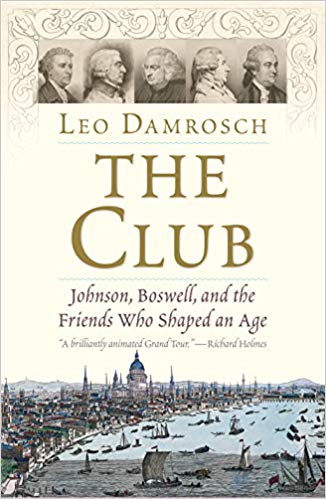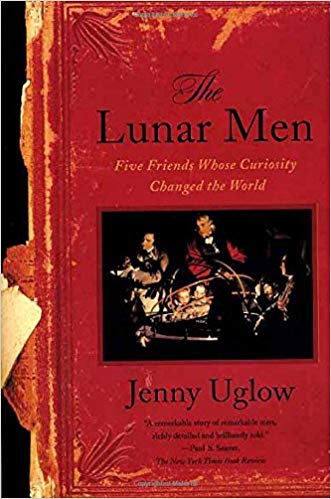2 minute read
Portsmouth, NH
The world’s uncertain landscape has created understandable anxiety today in the minds of many Entrepreneur Owner-Managers (EOMs), often obscuring the answers to basic strategic-level questions. Ask yourself this question: do you know whether you are operating your business in an industry that will give you a capital gain or not? If not, why be preoccupied with Enterprise Value? One of the most powerful drivers of wealth creation in an enterprise is answering that perennial question. Most managers (and owners) manage their business annually, and in between year ends, by the month according to a forecast or budget. Few consider whether the ultimate destination requires them to be harvesting some value each year (an annual), or accumulating value in planning for a capital gain.
There is extensive literature on value and risk in public markets, market by market, industry by industry, even in some cases, company by company. And public markets are largely speculative. In the private market on the other hand, owners or investors lack any clear sense of objective evidence regarding values of private companies. Experience shows that values of private companies are often influenced more by subjective factors like “the story,” strategic position, competition for the industry opportunity, and even what is in fashion at the moment – than by illuminating research or visions of free cash flow. There is little consensus and in fact confusion among public market investors in how wealth is created in private enterprises.
Some industries and professional fields simply do not offer the likelihood of a capital gain for their owners. An example might be a small personal service business where the revenue producers go home every night. Often in these examples of people and talent-centric businesses there is no replicable product that can be consistently produced day in and day out. Investors in such situations are often rightly concerned and ask the question, what will happen to the business if I create a capital gain for the current owners/revenue producers and then they take their money and go fishing?
Will your industry attract outside investor interest? If so, what are the drivers which will lead to or enhance the Enterprise Value of a capital gain? They are identifiable, measurable, and in most cases, can be impacted by owners and managements. In fact, they are so know-able, we’ve published a little workbook on it here. There are difficulties, complexities, even risks associated with identifying and acting on this information, but not acting has a completely predictable and depressing result on Enterprise Value.
Knowing whether your enterprise is a perennial or annual is a simple, but powerful concept. You gain new insight to the “allocation of resources” question in your business if you understand whether you are one or the other. Either one can be a good business, but it is lunacy to allocate finite resources in the hope of a capital gain someday that will not come.
What I am Reading / Listening to
The Club: Johnson, Boswell, and the Friends Who Shaped an Age (2019)
By Leo Damrosch
The Club was a dining and drinking society founded in 1763 which met every Friday at the Turk’s Head Tavern in London. Among its members were many of the greatest minds of the time, from Samuel Johnson to Adam Smith, Joshua Reynolds to Edward Gibbon, Edmund Burke to David Garrick – and they are all to be found in this colorful and entertaining group biography. It’s an excellent introduction to late 18th century literary, intellectual life, and a vivid depiction of the men who attended the Club and their incredibly diverse activities and achievements. As a portrait of London society at that particular time, it brings the era and the people to life. Insightful, well-researched, with many illustrations to enhance the text, I found it a thoroughly enjoyable and illuminating read.
Maybe it’s just me, but there’s something about the idea of bringing together a group of leading thinkers from diverse domains that is incredibly attractive.
The Club is super reminiscent (to me) of one of my favorite reads called The Lunar Men: Five Friends Whose Curiousity Changed the World by Jenny Uglow (2002.)
I guess I must be fascinated by the history of science and technology because I found this long and well-researched book to be a gift. In the late 1700s, Britain was a small society, and the thought leaders of British science and industry were closely connected to each other. Several of them often met monthly in an informal association called the Lunar Society (because they met on nights with a full moon).
Look at this group of members, and how much they influenced the development of technology and knowledge in that period:
Erasmus Darwin, grandfather of Charles Darwin (b1809), but also a hugely important figure in the intellectual world of the time. A practicing medical doctor, who also made many inventions and wrote several long descriptions of the natural world in the form of poetry. His views on evolution weren’t as well grounded as those of his more famous grandson, but were nevertheless very advanced for his time.
Josiah Wedgewood, famous for his creation of the enterprise designing and manufacturing beautiful English ceramics, but also a major force in the establishment of Britain’s network of navigable canals. His interest in developing canals came from the fact that he was sick of his beautiful pottery being broken when being transported over the terrible unmade roads of the time. On the smooth waters of a canal, his precious cargos would be far more likely to survive the journey.
James Watt, of steam engine fame. Watt didn’t invent the first steam engine, but he developed many significant improvements which greatly increased their efficiency and power, as well as making smaller engines possible. Initially only used in mining, Watt’s more efficient engines eventually saw use in the early textile industry in Britain to drive powered looms in factories.
Matthew Boulton, an early venture capitalist, prominent in manufacturing, and for a long time Watt’s business partner and venture capital provider. Boulton was the optimistic, outgoing character in the partnership compared with Watt. Without Boulton, I doubt Watt would ever have achieved any success.
Joseph Priestly, the most famous chemist of the time, the first person to isolate oxygen. I also discovered from this book that he was a prominent preacher with radical views. So radical that eventually his house and laboratory were destroyed by a mob and he ultimately left England for the Americas.
The closeness of the relationships between these people may be indicated by the fact that Erasmus Darwin’s son married a Wedgwood daughter, and one of their sons was Charles Darwin who needs no introduction.
As well as these five, there were at least seven other men prominent in the Lunar Society over the years. Sadly, they were all men, and we don’t get a chance to learn about what the views and creativity of women in their society contributed.
Entrepreneur Owner-Manager Quote
“ One could say, about any life experience, that nothing is as obvious at the beginning as it is at the end."
- Anonymous EOM from The Bigelow Forum 2018
Energy Creation
Contributed by Kimberly A. Errico
I recently attended a conference that not only had a positive impact on my professional development, but also made me realize how important personal introspection is in today’s fast-paced world.
Many high performing organizations today are encouraging their employees to attend classes, conferences, or join organizations to improve the impact of their work and/or motivate the individual both professionally and personally. If you aren’t working for a company that supports this, then I recommend finding one that does because it can be very rewarding! Another thing I’ve noticed over the years is that most people probably don’t take time to reflect on the experience.
Luckily, at this Marketing conference I enjoyed the majority of the presenters and since it was only about 60 participants you really had the time to learn from each other and make connections quickly. With many opportunities for conversation in two jam-packed days, the smaller group made it easy to identify where to exert most of your energy. Throughout the two days I was able to work independently and with others to discover best practices and challenge myself in different ways than I’m able to during my day-to-day.
There were many positives that came out of this event, but I most appreciated the personal introspection activity at the conclusion. Each person was handed a piece of paper with a hand full of questions. What is the most powerful or useful idea you’ve heard over the last two days? What is one quote or story you simply don’t want to forget? Write down one thing you will do differently and one thing you will stop doing next year. This exercise takes about 10-15 minutes and really allows you to reflect on how the experience impacted you (while it’s still fresh in your mind.) When the agenda is one session after the next and you’re laser-focused on taking notes, it’s important to schedule time to look over those notes. Personally, I find it helpful to re-type them out a day or two after the fact.
So this made me think, why don’t I do this as much in my personal experiences?
While it has become second nature to think critically, the ironic part is we often forget to apply this concept to ourselves. How did that experience make me feel? What was I grateful for? What irritated me and why? I imagine this exercise of self-reflection is why a lot of people pick up journaling as a form of therapy. I have friends that do this, but haven’t thought about doing it myself. Instead, I find 10 minutes in the morning to meditate, but I’ve been thinking that reflection at the end of my day could be just as powerful. Maybe it will help me notice negative patterns or look at the bigger picture after a day full of completing task after task. Yes, I took away some immediately useful information from that conference that I can apply to my job, but this conference also served as a reminder to take a step back from the ‘What’s Next?’ mentality. I think we all need that reminder every once in a while.

© 2024 Bigelow LLC. All rights reserved.




